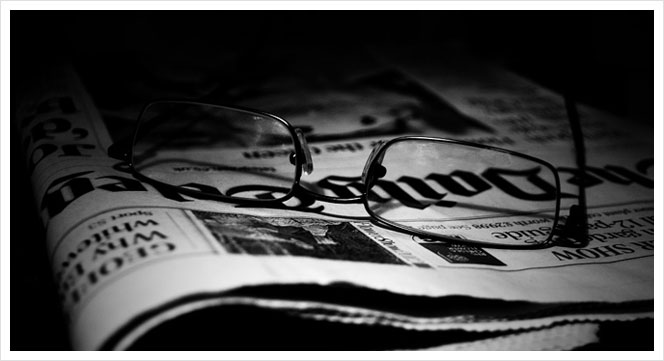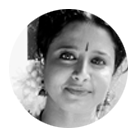We Are All Journalists

It suddenly dawned on me that I’m a journalist, as are many of you. For the bits of fact, information, comments, views and ideas that we spread through word- of- mouth, over the telephone, as text messages and, increasingly, over social media, inform and influence groups of people. And that is exactly what a ‘professional’ journalist does. There are a couple of differences, though. We do our work for free, expecting no financial remuneration or reward. Our reward may just be the opportunity we get to express ourselves or the approval we get from our peers. Also, we don’t have to worry about financial viability and the patronage of corporates and advertisers.
One interesting way to interrogate the complicated affair of ethics, objectivity, bias in journalism is to ask ourselves how we operate when we become purveyors of news. First of all, we edit. We talk and write about what interests us and hope will interest other people. Secondly, it is almost never just news, in the sense of facts, that we report but news and views. The two are inextricably linked. And our views are shaped by a whole host of factors- social and economic class, ideological leanings and so on. What price objectivity then? Thirdly, whether we admit it to ourselves or not, we shy away from talking about the ‘other side of the story’. We don’t like complicating life. We like issues neatly labelled, filed away in neat little holes. We are never free of bias. Aren’t these the impulses that also drive professional journalists, with the added burden of having to adhere to various organisational mandates, both editorial and financial?
The other issue is whether ethics, objectivity etc can be just one- sided. How do we behave as consumers of news? A reader might implicitly trust The Guardian, the New York Times, The Hindu and the Economic and Political Weekly, for example, while being very very sceptical about Fox News and other right wing media. Or the other way round! The point is that news is less and less about what happened the previous day or in the last one hour and increasingly about trying to form a world view in a confused and tumultuous world. And we struggle to hold on to a view that we have formed over long years of conditioning. It is almost like a basic survival instinct.
Objectivity is a debatable norm and biases are inevitable. What then will ethics mean? Well, it could mean honesty, both at the individual as well as the organisational level- the intellectual honesty to recognise and declare your particular point of view that drives your journalism. It is not the lack of objectivity but the pretence of it that does the real harm in mass journalism- the paid and planted stories, the driving of secret agendas, the convoluted and mysterious patterns of ownership.
Comments (7)
-
-
Mr. Chaterji is so very right. It’s the pretence of objectivity that does the real harm. But in the long run I guess the reader to learns to negotiate with the news, find his way around the haze and the shadow. I respectfully remember what the driver of a hired car in Srinagar told me when I asked him why should such a beautiful place be so violent. He said ” we are as peace loving as any other ordinary person anywhere else in the world; the violence has been thrust upon us by the army and the media.” Sounds a little too simplistic? Maybe! Maybe not!
-
This is the world of the web and the Smart-Phone. We can see the first manifestation of this new technology in things like Twitter or Facebook or Youtube or Instagram (and many more of these social media sites). These information-laden sites are 100% filled by us. Not by professionals, but by us. This is very important. There are no professional writers at Facebook or Twitter. There are also no editors or producers or Executive Producers or Associate editors or anyone else. Yet they work. More than 100 hours of video are uploaded to Youtube every minute. By us. We The People. So to speak. Now we come to News. That Holy Grail of society. Who gets to be a ‘journalist’? Once, that noble profession was limited to a small, select handful of people. I know because I was one. I was a journalist for a while with Anandabazar Ptrika. But that whole world was a function of a very different technology. One that no longer means anything. Today, anyone can be a journalist. In fact, everyone is and I agree with Dhritiman da on this who is much much more knowledgeable than me.
Everyone who contributes to Facebook or Instagram or Youtube or Twitter — anyone who contributes content to the vast and ever growing sprawl of the information media matrix is a journalist. Today, we are ALL journalists — and that is no bad thing, I guess. In fact, it is a good thing, because the power of gathering, processing and delivering information SHOULD be in 3 billion hands, not 3,000.
Every smart phone (and there are now an estimated 2 billion headed for 3 billion) around the world — every smart phone is a node for content creation — in video, in text, in photographs, in live streaming. And it should be. Who is more qualified to tell you what is happening in Syria than a Syrian? No matter what side he or she is on. Biased? You bet it is. But the best solution to bad free press is more free press.
So bring on the Free Press. The more the better (or the worse?) !!!-
thank you sameek
-
-
bookmarked!!, I really like your web site!



The urge to form a coherent meaning of the world around us is the urge to survive. We have to edit out most of the information that gatecrash all the time through our senses, and I certainly am not talking about the info-overload caused by the information industry (or whatever). It is plain and simple sensory inputs that a (wo)man’s brain (in the African savannas, if you wish) is unable to handle without filtering some out of perception (like the loss of the feeling that your leg is actually there after you keep it there for some time), and organizing the rest. Making a meaning of the world around us (or around a tsetse fly, the species doesn’t make much difference) is needed to make a living, and to pass the Filter-Analyse genes (I know I’m running the risk of sounding too much reductionist, but that can be handled later).
To evolve is to evolve as a news-gatherer news-filtering news-editing opinion-forming machinery. Else we are all long dead.
And who said something about the World’s Oldest Profession?